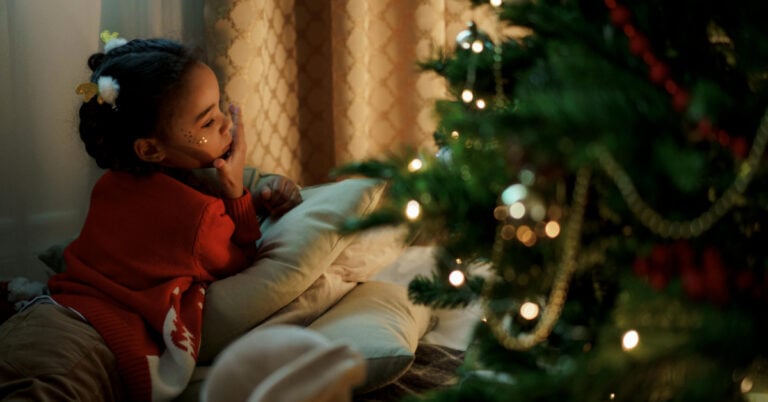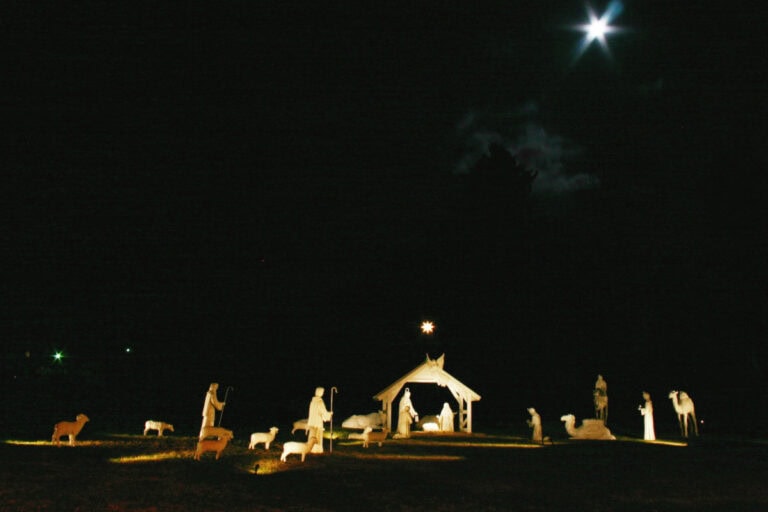Are you excited about the holiday season?
The holiday season is a time of many feelings – joy, happiness, thankfulness. But, for many children and families impacted by the child welfare system – there can be other feelings that are more prominent. Sadness, mourning, disappointment, just to name a few.
At Crossnore, we seek to provide our clients with a great holiday season. But we know that being in foster care is not where most kids want to celebrate the holidays. This is very normal. There is no place like home for the holidays. And many of our clients are unable to celebrate at home.
Using the SELF Tool
A great way to celebrate the holidays in a trauma-informed way is to consider using the SELF tool in your holiday planning. I recommend this tool for all of us, but especially for households supporting families impacted by the child welfare system.
SELF is a tool we use across our work at Crossnore to process situations in four different domains:
- Safety: physically, psychologically, socially, morally, racially and culturally
- Emotions: what feelings do I and other have about the holidays
- Loss: what losses are important to note or honor as we approach the holidays
- Future: how will the holidays be different in the future
Using the SELF tool is a great way to help all of us have the best possible holiday experience.
Safety

When we consider safety during the holiday season it is important to consider all the domains of safety. Physical safety involves ensuring our decorations are age appropriate and fire safe. This may also involve considering allergies that children may have. If a foster family has always had a live Christmas tree but the child placed in their home this year is allergic, they may change to an artificial tree this year.
Our Bridging Families homes seek to include birth families as much as possible in the Thanksgiving and Christmas day celebrations. This helps to maintain psychological and social safety for the children we serve. It is critical to listen to children and their families about the traditions they bring. And then to consider how can we incorporate those traditions into our practices this year. If a family comes from a specific cultural background, how can we incorporate recipes and practices that honor their traditions while also introducing them to cultural traditions of the cottage or foster family?
It is also important to process with the children and families when conflicts arise. What might be feeling unsafe to them in one of these domains? Oftentimes children (and adults!) can have a hard time giving words to what is bothering them. Creating space for these conversations proactively is important. When we can provide a safe environment for children during the holidays, they are more likely to experience joy and happiness even in light of their difficult situation as a child living in foster care.
Emotions
Using a feelings wheel or emotions chart is a great way to help everyone in your home build emotional intelligence. It is helpful to start with basic emotions like happy, sad, and mad for young children or even adults who have limited experience with emotional intelligence. Creating proactive space to name emotions and to honor whatever the child and family is feeling – even if it doesn’t match what they “are supposed to be feeling” – helps to create a trauma-informed holiday season.
It is also important to consider making and keeping therapy appointments ahead of and after the holiday season. It can be tempting to cancel appointments in favor of “more fun” activities. But keeping regular mental health support going is a great way to help all of us manage our emotions during holiday stress, changing schedules, command performances, and visits with family.
Loss
The holidays bring up loss for all of us. We note – whether we talk about it or not – who isn’t there this year who was present last year. For children and families impacted by the foster care system, this may be due to many things. It could be death, termination of parental rights, placement changes, siblings being separated, and more. The children and families we serve suffer a great deal of loss. And the holidays can punctuate them. Finding rituals and ways to honor these losses – possibly through lighting candles, open conversations, prayer, etc. – helps children and families know that you honor and acknowledge the feelings of loss they are experiencing.
Future

At Crossnore we seek “a way home” for all of the children and families we serve. For some, they will be reunified and be able to rekindle traditions with their families of origin. Others will be adopted and create new traditions with their adopted families. For others, they will age out of foster care and create a new future for themselves with their networks of support. Our goal is to help all of our clients dream of a new future and let them know that they have the agency to create new holiday traditions and memories.
At Crossnore we seek “a way home” for all of the children and families we serve. For some, they will be reunified and be able to rekindle traditions with their families of origin. Others will be adopted and create new traditions with their adopted families. For others, they will age out of foster care and create a new future for themselves with their networks of support. Our goal is to help all of our clients dream of a new future and let them know that they have the agency to create new holiday traditions and memories.
As you approach the holidays this year, expect all the feelings. And use the SELF tool to help prepare for the most trauma-informed holiday season you can. We wish you a blessed holiday season!



